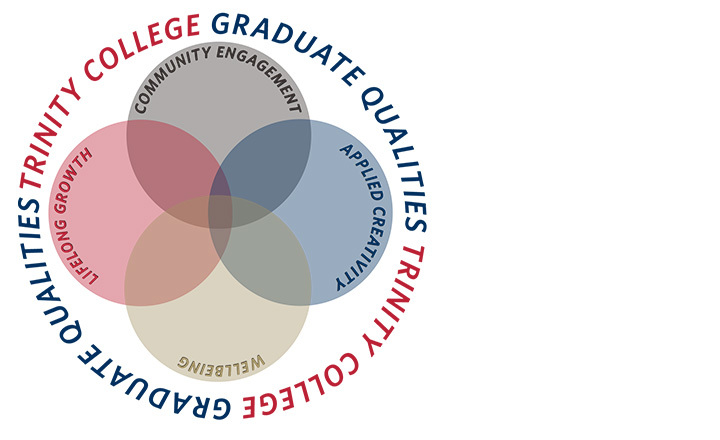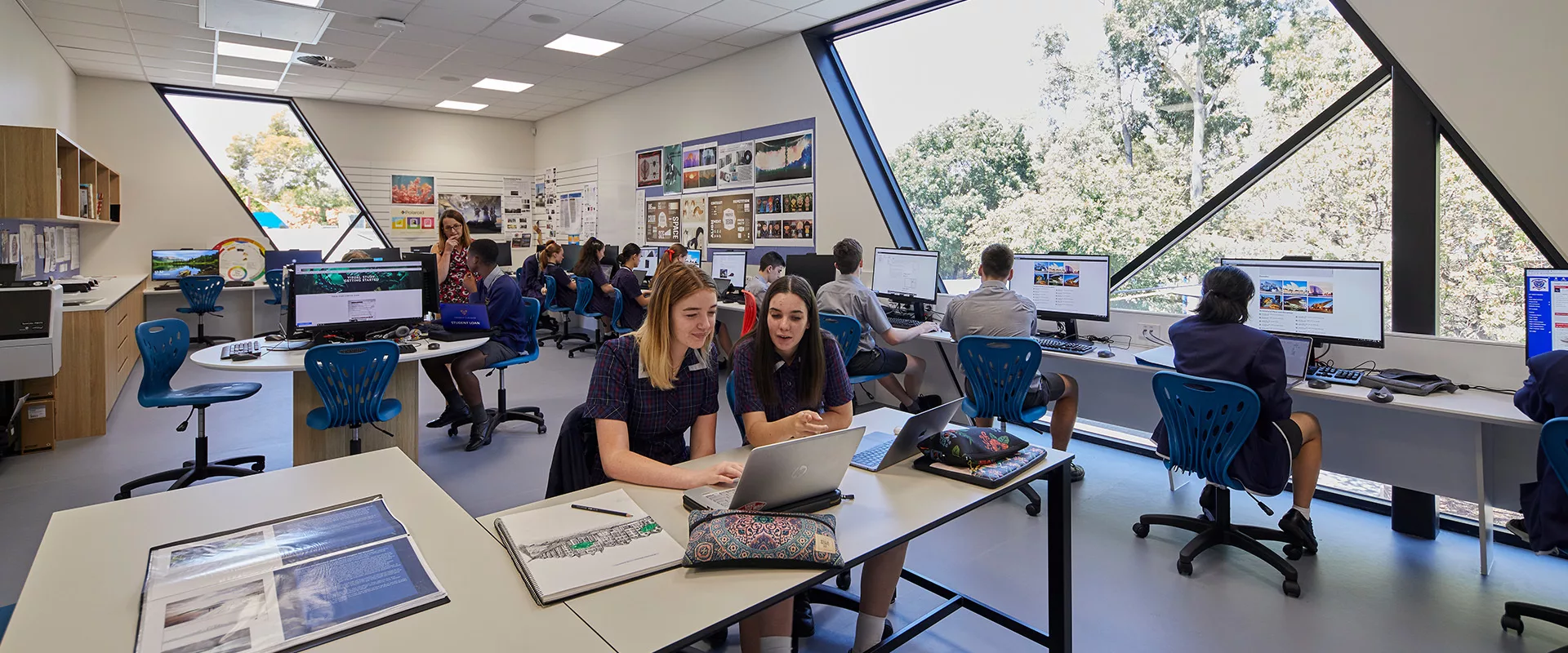Graduate Qualities
The Trinity College Graduate Qualities articulate the skills, qualities and dispositions that the College aims to foster in all our students. Our graduate qualities are based on the core values and mission of the College and were developed in consultation with students, parents, old scholars, staff and our enterprise partners.

Trinity College Graduate Qualities
The ability to develop novel and effective solutions in response to current and future challenges.
- Flexible thinking to generate many possible solutions to a problem.
- Dealing well with uncertainty and disruption.
- Desire to question assumptions and willingness to challenge the status quo.
- Critical thinking and consolidation of a solution to a problem.
A state of physical, mental and spiritual health that enables individuals to flourish in life with meaning and purpose.
- Ability to build emotional literacy, self-awareness and self-reflection.
- Ability to build and nurture physical and psychological assets needed to respond to life’s challenges and opportunities.
- Building what is best in oneself and others through the understanding of strengths of character.
- Respond to setbacks with resilience and perseverance in order to flourish.
The ability to be self-regulated and self-directed in the ongoing pursuit of personal and professional growth.
- Mastery of numeracy, literacy and digital literacy to enable effective engagement with future learning.
- Setting learning goals to respond to and prepare for continual change.
- Selection and use of effective strategies for learning.
- Ongoing self-reflection and evaluation to adapt and improve learning skills.
The ability to build positive and responsible relationships that achieve social good, locally and globally.
- Ability to build social capital through the formation and growth of positive relationships.
- Ability to communicate and collaborate effectively with individuals from diverse backgrounds.
- Development and the ongoing pursuit of cultural capital and an understanding of its significance in society.
- Collective purist of goals that serve social needs in local and global contexts.


